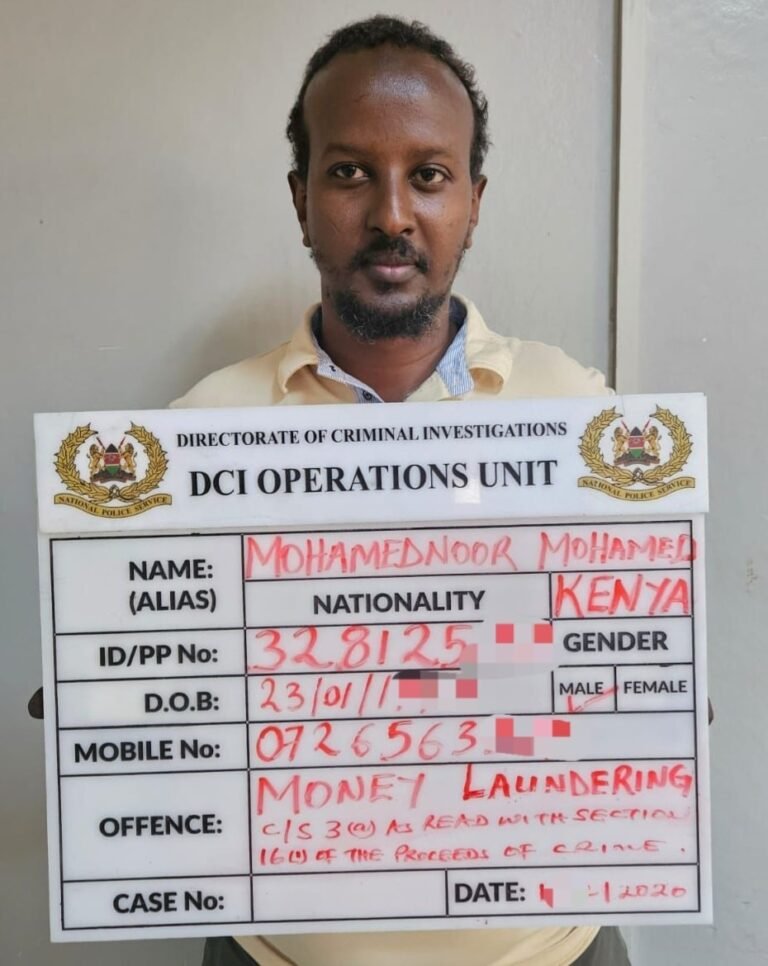
Inside KEBS: Finance Director Adan Mohamed Accused of Holding Vendors Hostage Over Payments
A storm is brewing at the Kenya Bureau of Standards as multiple vendors and insiders accuse Finance Director Adan Mohamed of turning the payment process into a tool of control and intimidation.
According to several officers and contractors, Adan has allegedly made it impossible for suppliers to access their rightful dues without going through him personally. They describe a toxic system where cheques are locked in drawers for days or even weeks, and approvals are stalled for no clear reason.
“He locks cheques in his drawer and travels, leaving us stranded,” said one senior officer. “Even when everything is approved by all directors, nothing moves unless he says so.”
Insiders claim Adan has made the Bureau’s financial system revolve entirely around his will. Even after other directors have signed off payments, the Finance Department under his control allegedly refuses to act until banks or suppliers contact him directly. The situation has created what one staff member described as a kingdom built on fear, where money moves only when the director decides.
For vendors doing business with the Bureau, the result has been devastating. Many are now facing serious financial distress after borrowing heavily to deliver goods and services. Some have had to deal with loan defaults, repossessions, and ruined credit histories because of the delayed payments.
“People are suffering because of one man’s ego,” said one frustrated supplier. “We have fulfilled our contracts, delivered on time, and cleared every requirement. But our payments are trapped in his office. When you ask questions, you are told to wait or risk being blacklisted.”
Several contractors allege that the stalling tactics are not accidental. They believe the delays are meant to push desperate vendors into private meetings where they are expected to “appreciate” the director before any payments are processed. Those who refuse allegedly find themselves quietly frozen out of future tenders.
The claims have sent shockwaves through the Bureau. Employees and vendors alike describe an environment where fear and silence have replaced accountability. “No one wants to confront him,” said a staff member from the finance unit. “He acts untouchable because of his connections. Even when we raise concerns, they disappear before reaching the top.”
According to internal correspondence seen by Kenya Today, several payment approvals were already cleared by all relevant offices, yet funds remained unreleased for weeks. In some cases, files were physically held back in the finance director’s office, and staff were instructed not to follow up.

For suppliers, the consequences have been dire. Some small businesses are collapsing under debt. Others have had to lay off workers. A few have turned to middlemen who promise to “talk to the right people” in exchange for money. What should have been a simple government payment process has become a maze of gatekeepers and silent deals.
One contractor described the situation as financial blackmail. “They know we depend on these payments to stay afloat. They know we borrowed to deliver. So when they delay our money, they know exactly what they are doing. It is cruel.”
Attempts to get a comment from the Bureau’s communications team were unsuccessful. Officials familiar with the matter either declined to speak or said the issue was being handled internally. However, several staff members who spoke on condition of anonymity confirmed that complaints have been filed but remain unresolved.
“It is an open secret,” said one employee. “Everyone knows he is holding cheques and delaying releases. But no one dares to question him. People fear being transferred or losing their jobs.”
Analysts say the revelations expose a worrying rot within one of Kenya’s most important regulatory agencies. The Bureau is meant to be the guardian of quality, safety, and fairness in trade. Yet the accusations suggest a collapse of integrity at the very heart of its operations.
Governance experts warn that if the allegations are true, KEBS risks losing credibility not because of poor product standards, but because of poor leadership ethics. “You cannot enforce national standards while failing to uphold basic accountability within your own offices,” said a governance consultant based in Nairobi.
The Ethics and Anti Corruption Commission is being urged to move quickly and investigate the claims. Civil society organisations have also called for an audit of all pending supplier payments to determine whether deliberate delays are being used as leverage for kickbacks.
“This is a matter that goes beyond bureaucracy,” said an anti corruption activist. “If an official is using public office to demand personal favours or bribes, that is criminal. It affects livelihoods, destroys trust, and damages Kenya’s image as a place to do business.”
Meanwhile, angry vendors are mobilising to submit a formal petition to the Ministry of Trade and Industry demanding the suspension of Adan Mohamed pending investigations. They argue that his continued presence in office makes a fair review impossible.
“We have no personal grudge against him,” one supplier explained. “We just want accountability. We want the system to work the way it is supposed to. We want to be paid for work we have already done.”
The scandal has exposed what insiders call a silent crisis within public institutions, where powerful individuals use administrative loopholes to control funds, manipulate procedures, and reward loyalty instead of merit.
At the Kenya Bureau of Standards, this alleged abuse of power is now threatening to overshadow its core mandate. The organisation that certifies the quality of Kenyan goods is now under scrutiny for the quality of its own leadership.
If the allegations are confirmed, they could mark one of the most embarrassing internal scandals in the Bureau’s history. For now, the cheques remain locked, the vendors remain waiting, and the institution that demands compliance from others is struggling to meet the most basic standard of all integrity.



